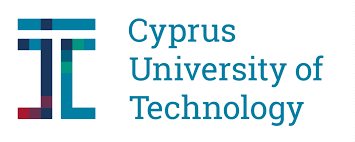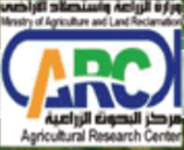Strategy 1. To define consortia of selected beneficial microbes supporting ecosystem services and to valorize vineyard wastes through the development of biofertilizer. In order to valorize the autochthonous biodiversity, indigenous bacteria and fungi, able to modulate plant physiological performances enhancing their resilience to climate change, can be isolated. REVINE will characterize microorganisms already isolated from local partners to build ‘beneficial microbial consortium’ (Synthetic microbial communities, SynComs) able to improve the microbial diversity and, in turn, enhance ecosystem services. Furthermore, to promote circular economy, REVINE will aim to valorize vineyard waste, by developing effective protocols for the production of biochar, compost, and digestates from pomace and pruning residues. These will be used as soil amendments and to favor microbial biodiversity
Strategy 2. To transfer the identified agronomical practices and the developed biostimulants in field condition, to verify their effectiveness,and to integrate the results from SO1 into cultivation protocols aimed to reduce chemical treatment, restore soil biodiversity and improve plant resilience to biotic and abiotic stresses. Since technique and time of application depend on climate and geographical features, REVINE will identify the best field condition for each Mediterranean region involved in the project. The microbial consortia and the developed soil amendments will be tested under field conditions at the different Mediterranean areas, within collaborations among the research centers and the farmers involved in the Project. In addition, REVINE will also implement the cover crop techniques in the vineyard context, by evaluating plant species able to improve soil fertility (e.g. by recruiting fungal or bacteria symbionts) and drought stress resilience, as well as to increase farmers’ income). Furthermore, selected grapevine genotypes (deriving from already established breeding programs) will be tested in field conditions for the ability to cope with biotic and abiotic stresses.
Strategy 3. To define the effect of the selected grapevine genotypes, cover crop consociations, amendments, biofertilizers, and microbial consortia on agronomic traits, resilience to biotic/abiotic stresses, and soil microbial biodiversity. To achieve such objective, REVINE will perform the characterization of the agronomic traits using targeted physiological, phenological and biochemical analyses. Then, REVINE will evaluate the ability of the selected strategies to enhance resilience regarding the abiotic (i.e. water deficiency) and/or biotic stresses by checking the plants priming status using eco-physiological and biochemical approaches. Eventually, the effect of microbial consortia, biochar, compost, consociation and biofertilizers on soil microbial community structures will be evaluated.
Strategy 4. To identify the impact of climate change on the effect of the different treatments on the soil-borne pathogen populations. REVINE will exploit microorganisms identified in WP1 for their ability to enhance plant resilience against biotic stress, focusing in specific on soil-borne pathogens (nematodes, fungi and bacteria. REVINE will also assess the impact of predicted climate change on the behaviour of both plant pathogens and PGPs and BCAs microbes. Furthermore REVINE intends to evaluate the most important grape features after microbial inoculation in order to determine the physiological, biochemical and agronomic impact of the selected strategies.
Strategy 5. To evaluate the impacts of climate change on the vine cropping systems and to assess the socio-economic contribution of the proposed project’s innovations on Mediterranean value chains and organizations. Appropriate environmental, economic and social tools/indexes will be used to evaluate the impact of the proposed approaches in each area. REVINE will increase uptake of regenerative viticulture practices by identifying motives and barriers for adopting new approaches by end-users and relevant stakeholders. REVINE will also draw on the best sustainable management practices identified within the project, to propose the planning of suitable agro-environmental measures for viticulture within the framework of the new Green Deal and the next Common Agricultural Policy.
Strategy 6. To raise visibility of the global importance of crop adaptation to climate change through the regenerative approaches, to actively disseminate the REVINE findings among Mediterranean farmers, service providers, citizens, scientists and policy makers, and to spread these capacities among farmers and young researchers, thus enabling an environment for implementation and uptake of project results. REVINE will create a community of involved actors (farmers, extension services, academia, industry, policy makers...) to raise an early and broad application of project results. The project will also promote a mutual learning process and promote the systematic exchange of information and good practices to effectively use research findings, and building capacity of young researchers across the Consortium members. To maximize the stakeholder involvement by highlighting the importance of crop adaptation to climate change and exploiting the project results, REVINE will implement demonstration fields among the project Consortium.
Strategy 7. To enhance networking, coordination and cooperation of the different institutions that share multidisciplinary expertise around the common program of research. REVINE wants to develop better reciprocal knowledge and promote trust-building among Consortium members maximizing links to relevant EU and national projects. This objective will also ensure that the project is successfully managed to comply with contractual guidelines and manage the risk in the project. Furthermore, the coordination will also supervise that the project is implemented in accordance with Responsible Research and Innovation principles (public engagement, open access, gender, ethics, and science education). Finally, this SO will set up proper data management procedures including common protocols (Standard Operating Procedures – SOPs) to harmonize measurements in all experimental trials, thus ensuring appropriate exploitation.
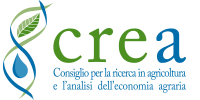
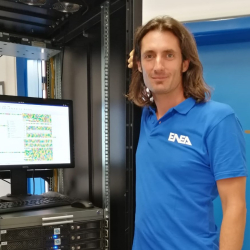



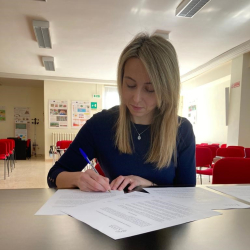








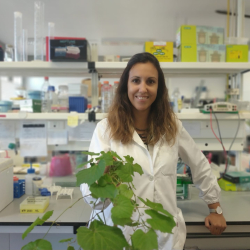
.png)


